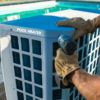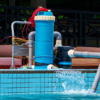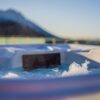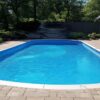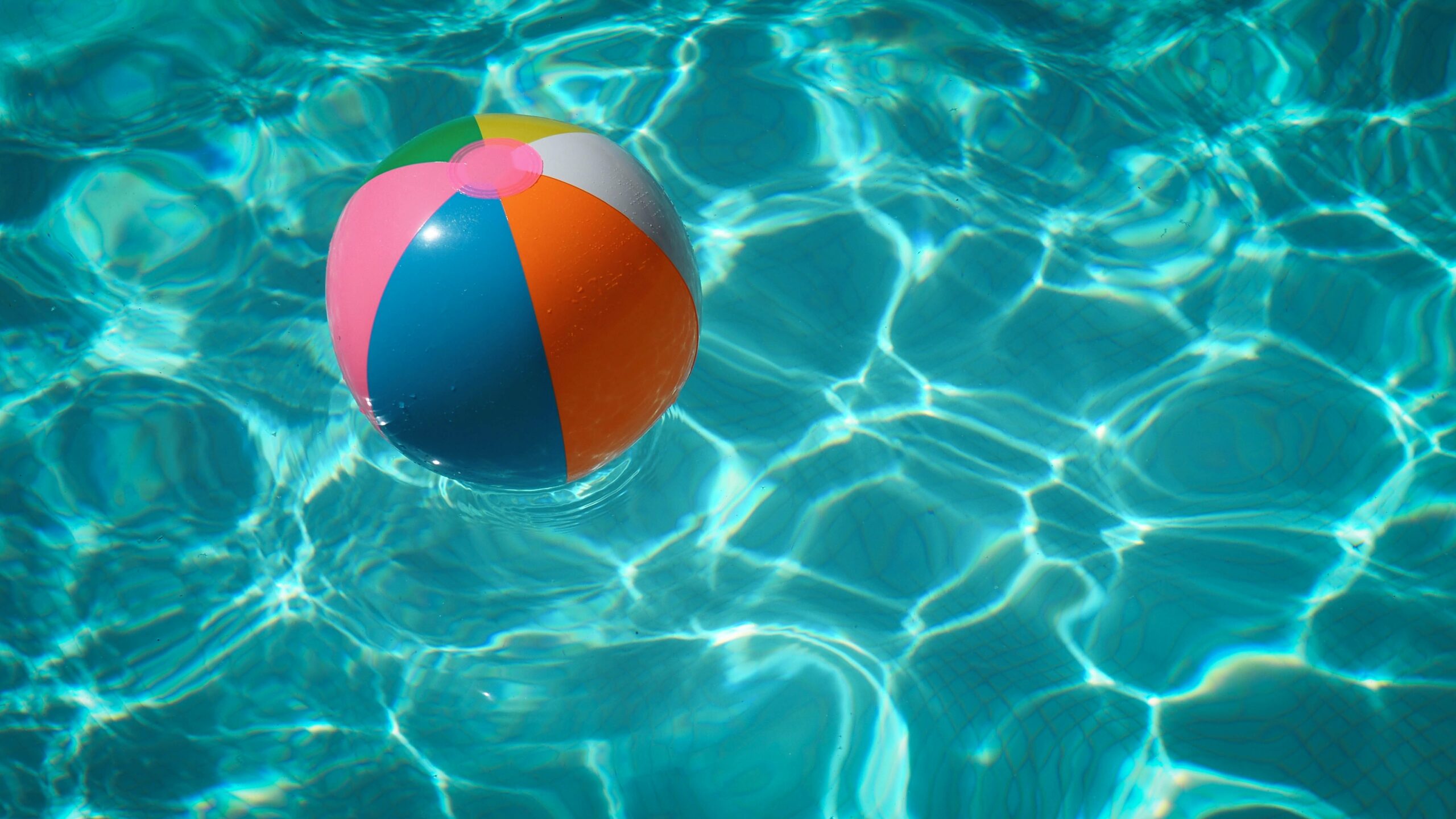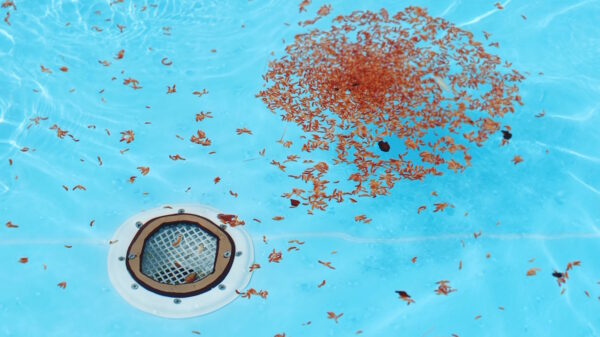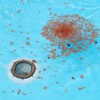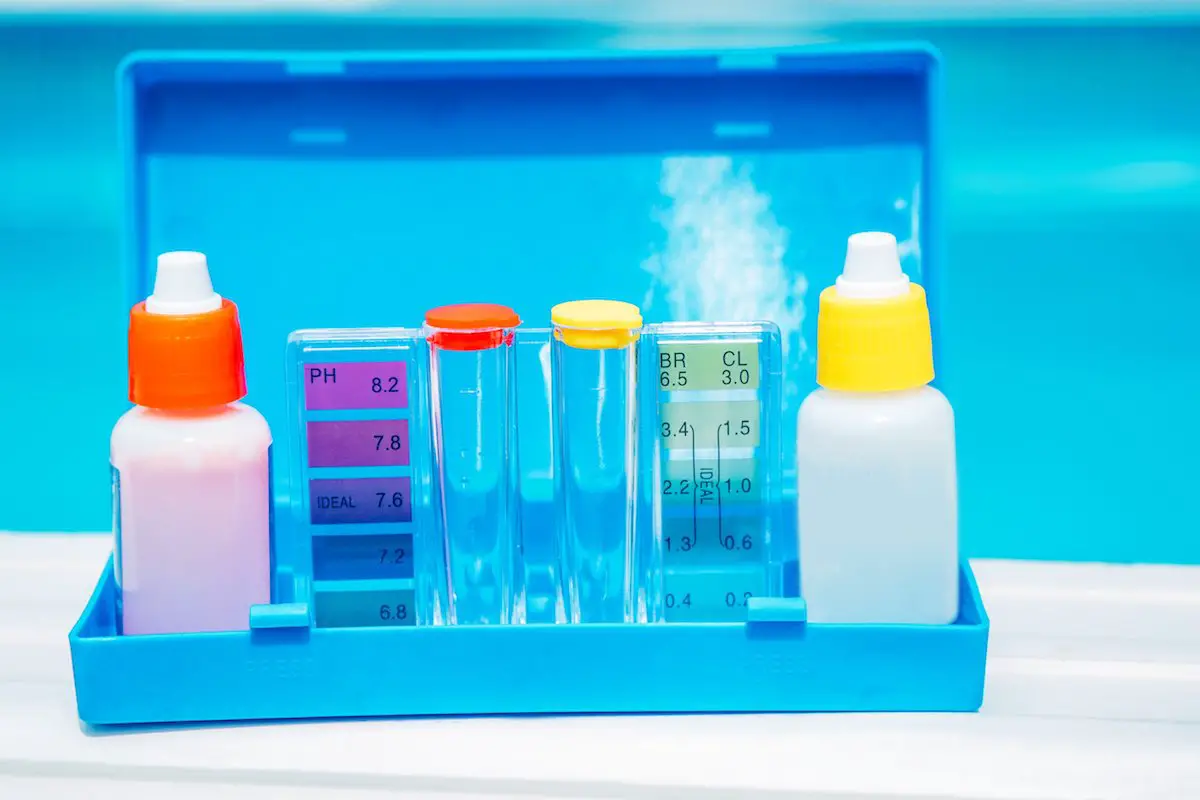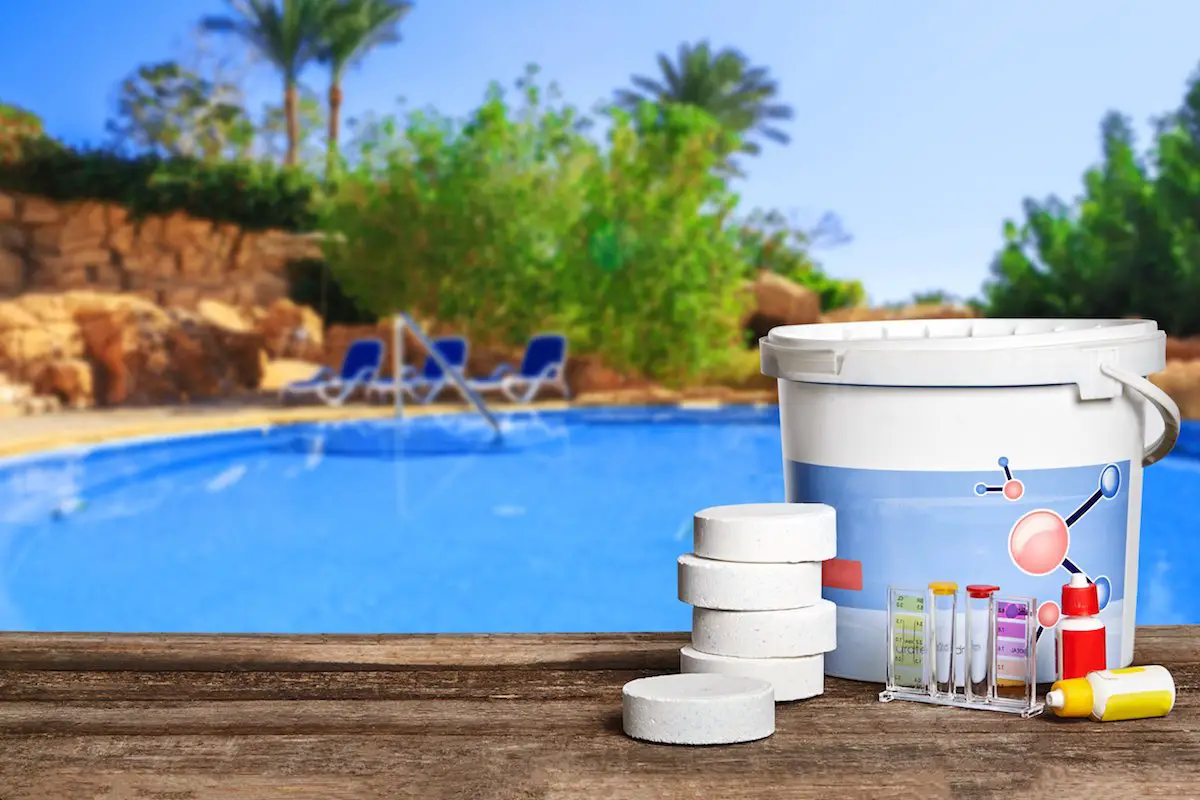Tips for Maintaining Your Pool Equipment
 Pools require a lot of equipment to function properly. It is important to maintain your pool equipment regularly so that it does not break down or cause damage to your pool.
Pools require a lot of equipment to function properly. It is important to maintain your pool equipment regularly so that it does not break down or cause damage to your pool.
The pumps, filters, and heaters all have to work for the water to be clean and warm enough for swimming. While pool repairs should typically be left to a professional, there are certain steps that you can take on your own when it comes to maintenance.
Pool Filter
The filters in a pool remove dirt and debris from the water so that swimmers don’t get dirty or sick from the chemicals from other people’s bodily fluids that float around in pools. Without proper filtration, however, these chemicals would build up quickly and poison swimmers, rendering the whole point of owning a pool moot.
Types of Pool Filters
There are several types of pool filters depending on the type of pool you own and your maintenance preferences.
Cartridge Pool Filters
Cartridge pool filters are perhaps the most common type of filter in use today. These work by using a large cartridge filled with different layers of materials to trap small particles at the top, larger ones at the bottom, and chemicals in between. This way, only clean water flows through the filter. The cartridge is easy to replace when it fills up and is usually efficient in trapping both small and large particles.
Diatomaceous Earth (DE) Pool Filters
DE pool filters work by using a cartridge filled with diatomaceous earth, which traps dirt and other impurities through adsorption – that is when certain materials adhere to one another. This type of filter is often used where the quality of water is important, as it leaves very little behind in the way of impurities. They are, however, more expensive than cartridge filters to replace and only work well with certain chemicals.
Sand Pool Filters
Sand pool filters are similar to cartridge filters in that they use multiple layers of sand, gravel, and other substances to separate impurities from the water. In addition, they also use a cartridge at the end to entrap small particles. Although they’re not as common as cartridge filters these days, sand filters remain popular with some pool owners due to their low cost and ease of use.
Cleaning a Pool Filter
Filters need to be cleaned every 3 months to ensure that they don’t get clogged and stop working. The process is simple:
- First, you turn off the pump to prevent water from draining out while the filter is taking a rest.
- Then, open both sides of the filter canister and pull out all of the old media inside. If it’s excessively dirty, you can wash it in a solution of 2 parts bleach to 3 parts water; otherwise, just put in a new filter pad.
- While you’re cleaning/replacing the filters, go ahead and check for cracks or other damage on the casing that holds them in place. Replace any cracked or damaged pieces before turning your filter back and refilling it with clean pool water.
Possible Pool Filter Problems and How to Fix It
There are several common pool filter problems that you may into during your regular maintenance.
Stuck Skimmer Basket
The skimmer basket can prevent debris from entering the pump. The pump will suddenly shut off, but you may notice that it does not empty once it turns back on. The basket may be stuck to the side of the pool, so when you are pulling out leaves or dirt it attaches itself to the pump.
One can release the debris by releasing enough pressure is applied to the basket. You can also use a flat head screwdriver or similar tool to release the debris.
Filter Clogged with Debris
Another reason for your pump to shut off is because it’s clogged with too much debris. The water will slowly drain, leaving you with no choice but to close down your pool until someone repairs the problem. To avoid this problem, you should clean your filter to ensure that it can function properly.
Fixing the clog depends on where the debris is located. If it’s closer to the bottom, then a “backwash” will help release it from the filter. To do a backwash, turn off your pump and open up a valve for the dirty water. Turn on the pump, creating a high enough pressure for the debris to be released from the filter.
If it’s closer to the top, you will have to manually remove the debris. You can do this by using a flat head screwdriver or any other tool that can help release it from your filter.
Water Level is Too Low
Low water levels in the pool can cause problems such as poor circulation. It will be harder for the pump to circulate the dirt and debris out when it has nothing to push against. You should keep your water level balanced, and check it regularly just in case there is a leak somewhere that you don’t know about yet.
A simple fix for this problem is to turn on the pump manually, creating enough pressure to send water through your filter. You can also pour more water into the pool by using a bucket.
Pool Heater
 The heater is responsible for warming the pool water to comfortable temperatures, which can help prevent dangerous cases of hypothermia in swimmers.
The heater is responsible for warming the pool water to comfortable temperatures, which can help prevent dangerous cases of hypothermia in swimmers.
If your heater isn’t heating the water adequately, though, people could be exposed to dangerously cold temperatures while still thinking that the water feels fine. This means that it’s essential to maintain your heater as well as you possibly can.
Maintaining a Pool Heater
- Start by checking the temperature setting on the thermostat to make sure it’s set high enough before moving on to anything else.
- Double-check that all valves are open and nothing is preventing air from flowing into or out of the unit.
- If everything checks out, then you should check the temperature probe inside the unit itself; if it’s dirty, replace the probe.
- It’s important to check electrical connections regularly since loose or corroded connections can cause fires in your pool.
- Ensure that all wires are tightly connected and remove any corrosion you find with a wire brush before tightening them down to prevent future issues.
- Finally, check all connections at least once every 6 months to make sure they’re working properly.
Possible Pool Heater Problems and How to Fix It
There are several common pool heater problems that you may into during your regular maintenance.
Faulty Coils
If any one of these coils is faulty, you can receive a warning from the thermostat that no heat is being produced or that the heater will shut down completely. Contact a professional so avoid overheating.
Pilot Light
If the pilot light goes out, it can be hard to relight because multiple safety features need to be explained by a professional service company before attempting to fix or replace the pilot light on your own.
Leaking Heater
A common problem is when the pool heater starts leaking because of freezing temperatures. Because pool water needs to be circulating for your heater to run efficiently, you can expect to lose all your heat rapidly if there’s a leak. If you notice a drop in water level or a puddle near your pool heater, it’s time to call in a professional.
Faulty Thermostat
If your pool is always warm even when the filter is shut off, you might have a broken heating element that needs replacing. If your thermostat is constantly displaying incorrect temperature readings, you might need to replace it completely.
Pool Pump
 Pumps are responsible for pumping water through the filters and back into the pool once it’s clean again. If there is no pump or if it doesn’t work, then you’ll have no cleaning cycle and your pool will quickly become unusable due to sediment build-up inside of it.
Pumps are responsible for pumping water through the filters and back into the pool once it’s clean again. If there is no pump or if it doesn’t work, then you’ll have no cleaning cycle and your pool will quickly become unusable due to sediment build-up inside of it.
Fortunately, problems with pumps tend to be relatively easy to diagnose and fix.
Maintaining a Pool Pump
- First, switch off the power to your pump at the source so that you don’t accidentally shock yourself when checking it.
- Then, look for signs of leaking oil or water which can indicate a damaged impeller – replace any oil you find with new motor oil before switching the pump back on since you don’t want to risk introducing water into the system.
- If there’s no sign of liquid anywhere near your pump, though, it may simply be jammed up – unplugging and re-plugging it after 10 minutes should get everything moving again.
Possible Pool Pump Problems and How to Fix It
There are several common pool pump problems that you may into during your regular maintenance.
Pump Not Running
If your pump is not running, make sure you check all of the fuses in your circuit breaker box. Most pumps come with their reset switch that must be pressed after turning off any fuses, but if the motor itself has already burned out or there is an internal malfunction, it’s best to contact a professional.
Noisy Pump
If your pump is making an abnormal sound you can check all of the hoses for kinks, damaged areas (such as soft spots), or debris plugging up the area that may be causing a drag on the impeller. Make sure to check the motor for any oil or other fluids that may have leaked into it. If there is a leak, call a professional.
By regularly maintaining your pool equipment, you can minimize costly repairs that would require professional attention.


